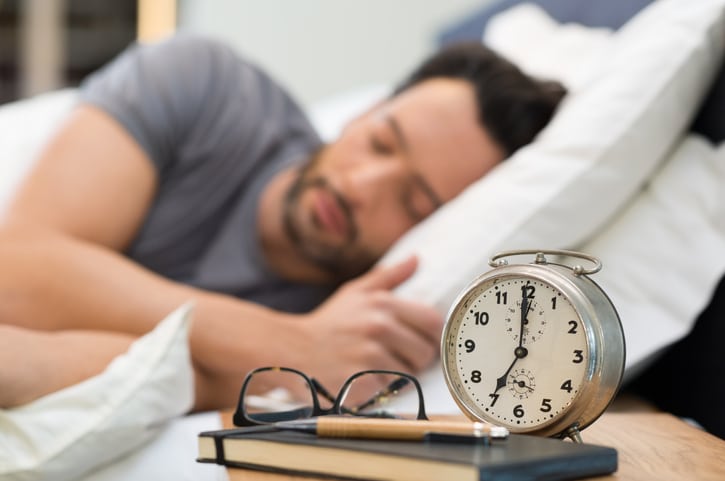Sleep is as vital to good health as a balanced diet and adequate hydration, but sleep quality and quantity are sometimes easy to overlook. If you are dehydrated, you will likely feel thirsty. However, the effects of sleep deprivation or poor sleep quality can slowly creep up on you and may not be apparent immediately. Still, your sleep health is tied closely to your overall health, so it is important that you get good sleep and see your physician if you find yourself continuing to have trouble catching enough Zzzs.
How Much Sleep is Enough?
There is no universally correct amount of sleep. The amount of sleep needed varies from person to person according to age, health, and activity level. In general, though, adults need between seven and nine hours of good sleep each night.
It is also important to realize that eight hours spent tossing and turning and awakening frequently is not the same as eight hours of good, continuous sleep. The Mayo Clinic states you need to enter rapid eye movement (REM) sleep, a deep sleep phase where you dream, to have restorative sleep. Brief naps during the day may be refreshing but are no substitute for deep, long periods of sleep.
Consequences of Insufficient Sleep
Just a single night of inadequate sleep can leave you feeling sleepy and fatigued the next day. According to the American Academy of Sleep Medicine, irritability, concentration difficulties, anxiety, depression, and lack of coordination are all among the symptoms of sleep deprivation. Since lack of sleep slows your reflexes and hampers your ability to focus, it can be extremely dangerous to drive a vehicle or perform other hazardous activities when you have not received enough sleep.
Then there are the consequences of long-term sleep deprivation which can contribute to serious health condition, such as obesity, diabetes, hypertension (high blood pressure), and even heart attacks. For more details on how sleep deprivation specifically impacts each of these health conditions, click here.
Sleep Deprivation Causes
Most cases of sleep deprivation among adults are caused by lifestyle factors. Examples include changing work shifts, stress, or attempting to sleep in an uncomfortable environment. People who work night shifts or swing shifts are particularly prone to sleep problems.
Caffeine consumption and the use of other stimulants can also cause sleep difficulties. If you are having trouble sleeping, it is a good idea to refrain from consuming caffeine at least five hours before your bedtime.
Medical Causes
Several medical conditions can contribute to sleep deprivation. The top sleep disorders include:
- – Sleep apnea – pauses in breathing during sleep
- – Restless legs syndrome – a movement disorder causing an urge to move your legs when falling asleep
- – Urinary incontinence – problems with bladder control while asleep
- – Narcolepsy – excessive daytime sleepiness and falling asleep suddenly
– Night terrors – extremely troubling nightmares sometimes coupled with sleep paralysis
Fortunately, there are treatments available for all these conditions. If you feel you may have symptoms of any of these problems, inform your doctor during your next visit.
When to See Your Doctor
Some sleep disorders have specific symptoms. For example, patients with sleep apnea often snore loudly and awaken choking or gasping for air. However, sometimes symptoms of sleep deprivation are not obvious or are non-specific. You may simply feel very tired throughout your day with no other signs of a problem.
Everyone has trouble sleeping occasionally. Perhaps you had a stressful day, or environmental noises are keeping you awake. However, when lack of sleep impacts your waking life, it is time to see your doctor. Excessive daytime sleepiness, slowed reflexes, or difficulty concentrating are all reasons to let your primary care physician know about your sleep problems.
Depending on the nature of your difficulties, your doctor may be able to prescribe medication to treat your condition. They also may schedule tests such as a sleep study or refer you to a sleep medicine physician, pulmonologist, or another specialist. While most sleep conditions are treatable, treatment cannot begin until you visit your doctor and inform them of the problem.
Looking For a Primary Care Doctor in Connecticut?
PACT Primary Care is Accepting New Patients!
Locations throughout Connecticut in Guilford, Hamden, Madison, Milford, New Haven, Orange, West Haven and Wallingford.
To schedule an appointment, request an appointment online here or call a local center near you.









